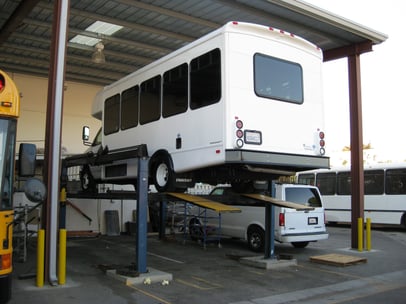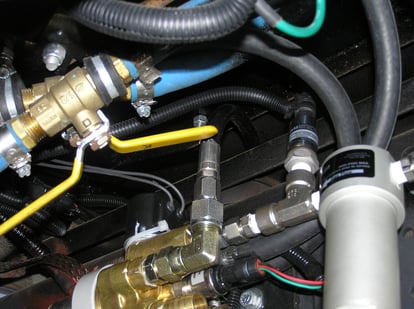Fleet Propane Conversion - Side by Side Comparison: Propane Vs CNG

Fleet managers have two primary options when looking at alternative fuels: fleet propane conversion or compressed natural gas (CNG).
A fleet propane conversion or CNG conversion is a substantial investmet of time and resources, making it essential that you perform adequate research before deciding which way to take your fleet. The following brief guide will show you some of the important distinctions between your two options.
Cost
When looking at a CNG or fleet propane conversion, long-term costs associated with keeping the vehicles on the road outweigh the installation costs. Both fuels are slightly more expensive than gasoline and comparable in price to diesel.
"In January 2016, CNG averaged $2.09 nationwide while propane fell to $2.85."
Always remember that propane prices fluctuate. When oil prices rise, so can the price of propane, which becomes much more expensive during the coldest months of winter. CNG, on the other hand, stays relatively stable at all times because of its use and regulation as a fuel for power plants.
Efficiency
Companies measure the efficiency of alternative fuels in their gasoline gallon equivalent, or GGE. CNG is almost a 1:1 match with gasoline, which means one GGE of CNG is roughly equivalent in efficiency and power to one gallon of gas. Propane has a lower efficiency rating for a GGE. In general, propane is up to 28 percent less efficient than gasoline and vehicles using propane may travel almost 28 percent fewer miles per gallon.
Access
Government programs to promote alternative fuels benefited propane companies far more than CNG stations. At present, there are over 1500 propane stations spread throughout the United States, but barely 900 CNG locations. CNG stations are located in mostly urban areas, which does make them accessible for commercial fleet vehicles in cities.
Installation
 CNG and fleet propane conversion are available for light, medium, and heavy duty commercial vehicles. At the moment, CNG conversions tend to be more expensive with a price tag that can reach as high as $15k; propane conversions typically cost less than $10k.
CNG and fleet propane conversion are available for light, medium, and heavy duty commercial vehicles. At the moment, CNG conversions tend to be more expensive with a price tag that can reach as high as $15k; propane conversions typically cost less than $10k.
As alternative fuels, CNG and fleet propane conversion are attractive choices. Both protect the environment and both have long-term stability in supply. In the event you're a fleet manager with ready access to a CNG station or can install a CNG station on your lot, natural gas is your best choice, otherwise, propane is an acceptable alternative.
Green Alternative Systems is the largest Ford Recognized Qualified Vehicle Modifier (QVM) Alternative Fuel Program Installer in North America, with multiple dedicated facilities that focus on the installation of Compressed Natural Gas (CNG) and Propane fuel conversion systems for fleet customers.

